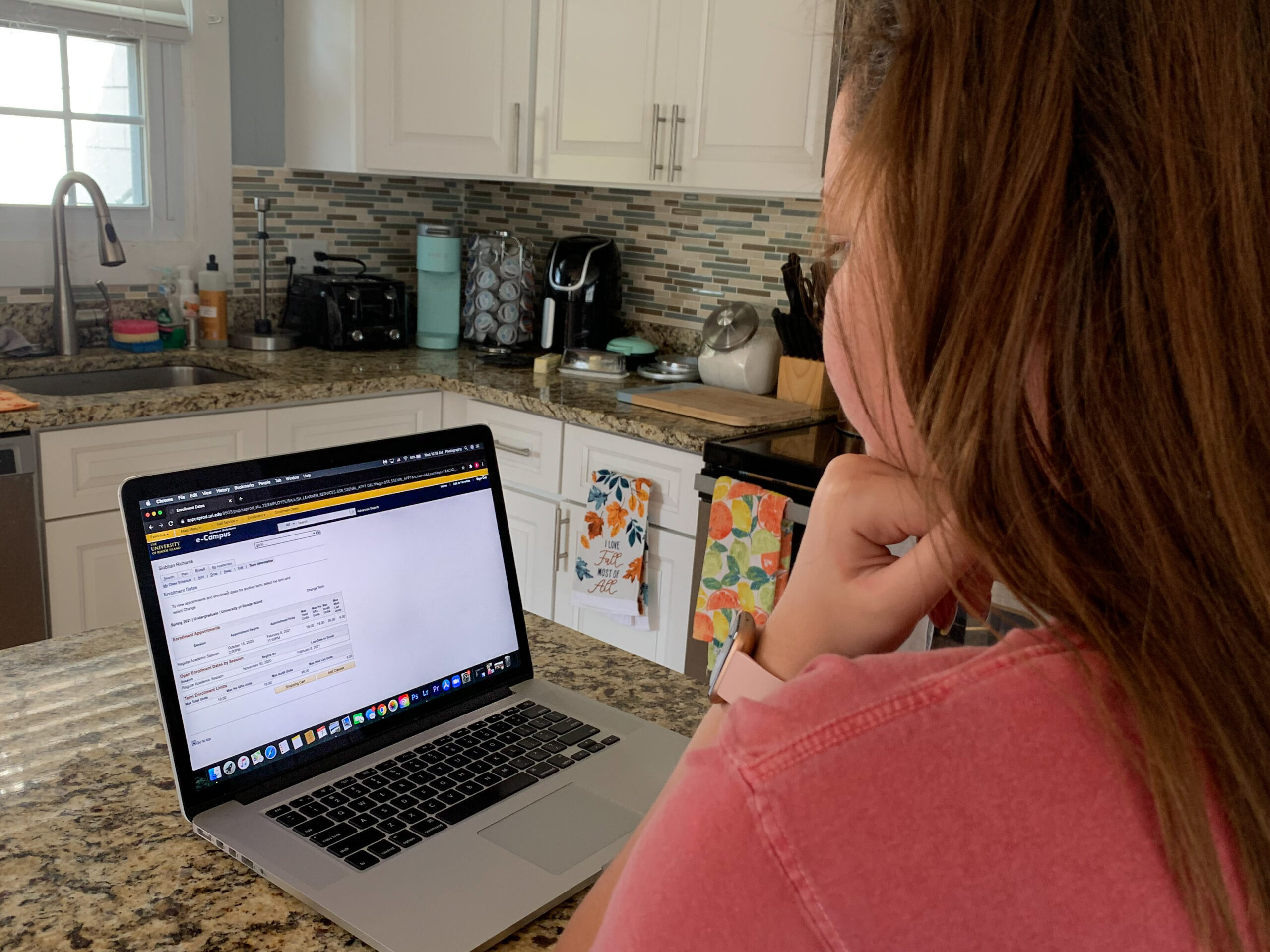Online, in-person and blended classes will continue to be the norm
Students can start signing up for classes for the spring semester. Photo by Siobhan Richards
Despite all of the changes created by COVID-19, the University of Rhode Island’s course selection process will be similar to as it was pre-pandemic.
Course selection at URI will begin on Oct. 14 and end before Thanksgiving of this year.
“It’s going to work exactly the same as it has been for the past 15 years,” John Humphrey, senior associate director of registration and records, said.
The start date for students to begin enrollment are currently on e-Campus, according to Humphrey. Student athletes, students with disabilities, student veterans and students in the Honors Program are typically the first to register. After that, students with the most credits register, while the students with fewest credits go last.
Humphrey said that changes to classes will depend on professors, colleges and departments. This leaves room for any instructors who were planning to teach in-person to change their minds if they no longer feel safe doing so, as well as departments that don’t want to put their professors in that situation. In order to account for that, Humphrey advised students to check their course listings on a regular basis to see if the schedule for any of their classes have changed.
Assistant Director of Registration Ken Sisson said that the University will confirm whether classes are offered in-person or online, synchronous or asynchronous, as soon as a decision is made.
“If anyone’s looking at the spring schedule, it’s changing,” Sisson said. “We reached out to the departments, requesting anyone who wants to teach online, so those changes are going to go into effect now. I’m assuming it’s going to be similar to the current semester. We won’t know until we can get it all in there.”
Both Humphrey and Sisson believe that class registration for this current semester has prepared them well for another registration during the age of COVID-19.
“Overall, considering what we had to go through in the spring, and then with orientation being all-virtual this year for the first time, we actually did really well with getting everyone enrolled,” Humphrey said.
Due to that experience, both don’t anticipate many problems with registration for the spring semester. Sisson also said that he expects spring semester to be a bit smoother due to professors being more comfortable with online learning.
While course selection remains the same, however, a lot will still be up in the air in regards to class schedules and whether classes will even be meeting in person at all.
“Who knows what’s going to happen in a few months?” Sisson said. “Hopefully things will be status quo at least.”

